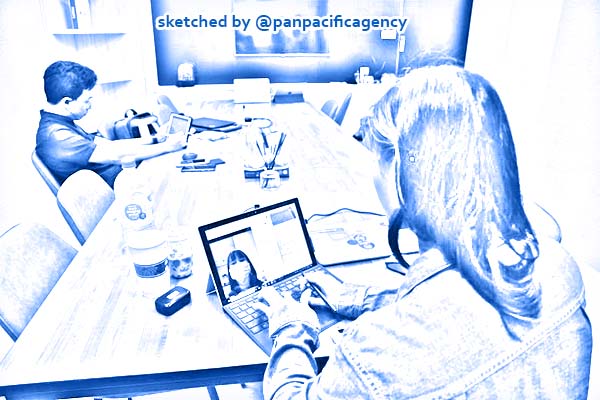Economy’s digitizing is reachless without soft skills’ education: Experts

A tutor during a livestreaming session with a Secondary 3 physics student on March 31, 2020. PHOTO: ST FILE. Sketched by the Pan Pacific Agency.
MOSCOW, Dec 10, 2021, Pan Pacific Agency. Soft skills are not more important than basic knowledge, but the education received at universities must be applied in combination with soft skills. As long as universities are not adapted to this kind of interaction with students, it does not allow to digitize economy at a pace that would meet the needs of modern times. These and other questions were discussed at the “Nobel Vision. Open Innovations 2.0” Forum by participants of the discussion “Human Resources and Competencies. “Digital” Employees of the Future Labour Market, the event’s press service told Pan Pacific Agency.
Amid the fourth industrial revolution people must be ready to learn what does not yet exist, argues Phil Baty, chief knowledge officer at Times Higher Education. That is why soft skills are currently taking on a special function as a core element of the future labour market.
“We talk a lot about meta-universes, pay attention to opinions of philosophers and sociologists about the future. And everyone notes that a person needs a combination of knowledge and soft skills. And this in turn requires an interdisciplinary approach on the part of universities,” says Mr. Baty.
However, by no means all universities, even in developed countries, are ready for such a change. Some universities are only starting to adapt their curriculums to modern realities and future demands, notes Kajikawa Yuya, professor at the Tokyo University of Technology.
“We are introducing motivational education for first-year students to strengthen their desire for further education. We are not adapting them to existing knowledge, because that is not the university’s objective. The main function is to teach them how to create solutions, create businesses, and promote the development of their creativity,” says Mr. Kajikawa.
In the next 10 years, higher educational institutions will be changing substantially, argues Ekaterina Lyubimova, deputy president for education at the University-2035. Among other things, this will be due to employers’ demands not for university diplomas, but for the skills which an employee can obtain by taking Coursera courses. The speaker called the ability to deal with big data as one of the main contemporary skills.
“University managers are not fully aware of the problem and do not understand that they can be displaced. Something also needs to be changed in the state management of universities, so the mindset of managers could be changed,” says Ekaterina Lyubimova.
Yet a person is established long before their student years, reminds Alexei Zakharov, founder and president of SuperJob. “The knowledge that is already lacking on both domestic and global labour market are provided in kindergartens and at elementary schools, not universities. People currently spend tens of thousands of hours on skills they will never need. Writing with a pen, for instance. Until we realize that soft skills are created not at school, not universities, we will still have economic issues,” says Alexey Zakharov.
A person with developed soft skills is better prepared for the digital reality and work with the use of technology, says Anshul Sonak, director of global digital readiness programs at Intel: “All professions are becoming more and more digital. This resonates with digital readiness in terms of not only professional skills, but also creative ones. People’s consumption is changing, so we have to quickly navigate what is going on and know how to use artificial intelligence to make it serve to benefit people.